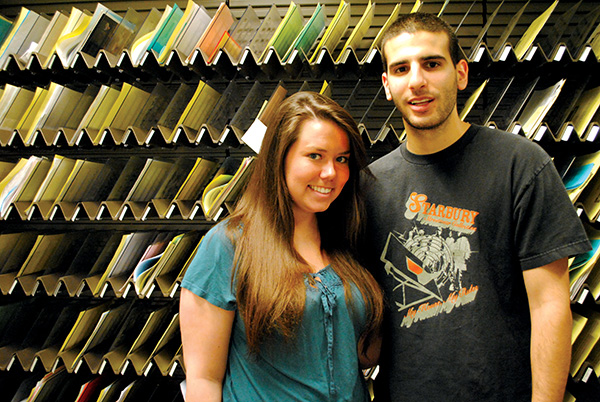
The note-sharing website www.Notehall.com has become an outcast in the eyes of Binghamton University administration, drawing criticism for providing a service that some say can lead to academic dishonesty and copyright infringement.
In a recent B-Line message, students were told they should refrain from using Notehall.
“Faculty members are beginning to crack down on use of the website Notehall. It is considered a form of copyright infringement and academic dishonesty,” the B-Line stated.
According to the Notehall website, the service allows users to “distribute independently-created works” for others to see. Notehall is used for a variety of academic disciplines, and students can search for specific courses at certain universities.
But University officials see problems with Notehall, and they have advised students to exercise caution when using the website. Posting information that is considered intellectual property of professors could violate copyright law.
“I worry that they’re setting up a system where they’re telling people things that are problematic,” said Jennifer Jensen, associate dean of academic affairs. “What most students are going to want are things that are best capturing of that lecture as possible, and that means probably using some of those faculty members’ phrases.”
Some students may not be aware of what constitutes copyright infringement or academic dishonesty, but Jensen said the University wants to make it clear that students using the website may be in violation of University policies.
“It is against University policy to use our computer technologies for commercial purposes,” Jensen said. “If you’re spamming your Blackboard account with this stuff and a faculty member says, ‘That’s commercial, I want it shut down,’ they’re going to have a very good case.”
Kate Flatley, Student Association vice president of academic affairs-elect, said she agrees with the University’s position.
“The concern is that it might be a copyright violation and that’s because technically professors’ lecture notes and PowerPoints […] are intellectual property. In addition, things like charts, graphs, pictures can also be considered intellectual property of that publisher or textbook author,” Flatley said. “So, if students are taking notes and they include a chart or something of that nature, technically that’s an infringement of intellectual property law and copyright law.”
The cases involving academic honesty have been piling up, according to current SA Vice President of Academic Affairs Daniel Rabinowitz.
“The Academic Honesty Committee of Harpur, which deals with all academic honesty cases involving Harpur, has seen a quadrupling of their cases over the past year,” Rabinowitz said.
Jensen urged caution among students.
“There are enormous potential problems with academic integrity here, and my primary concern is to get the word out to students so they are aware with all the difficulties here and proceed with enormous caution,” she said.
Even aside from academic issues, some students are wary of the site.
“I went to check it out because I thought it was a good idea but after getting a closer look at it, it seemed like a rip off,” said Marisa Campbell, a senior majoring in biology. “I’d rather write my own notes than have to pay for someone else’s.”


